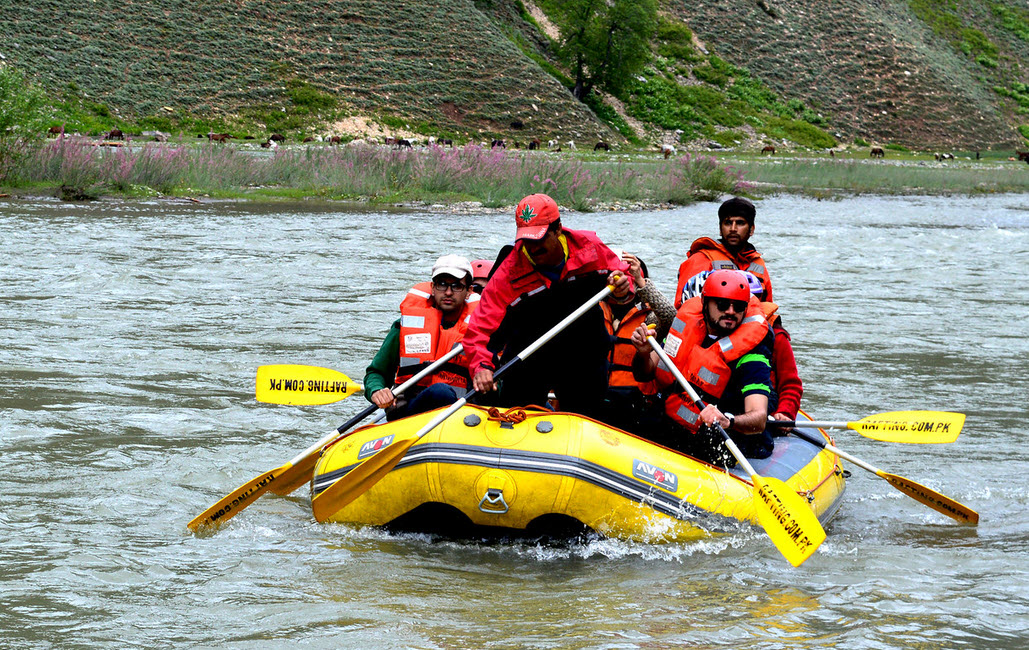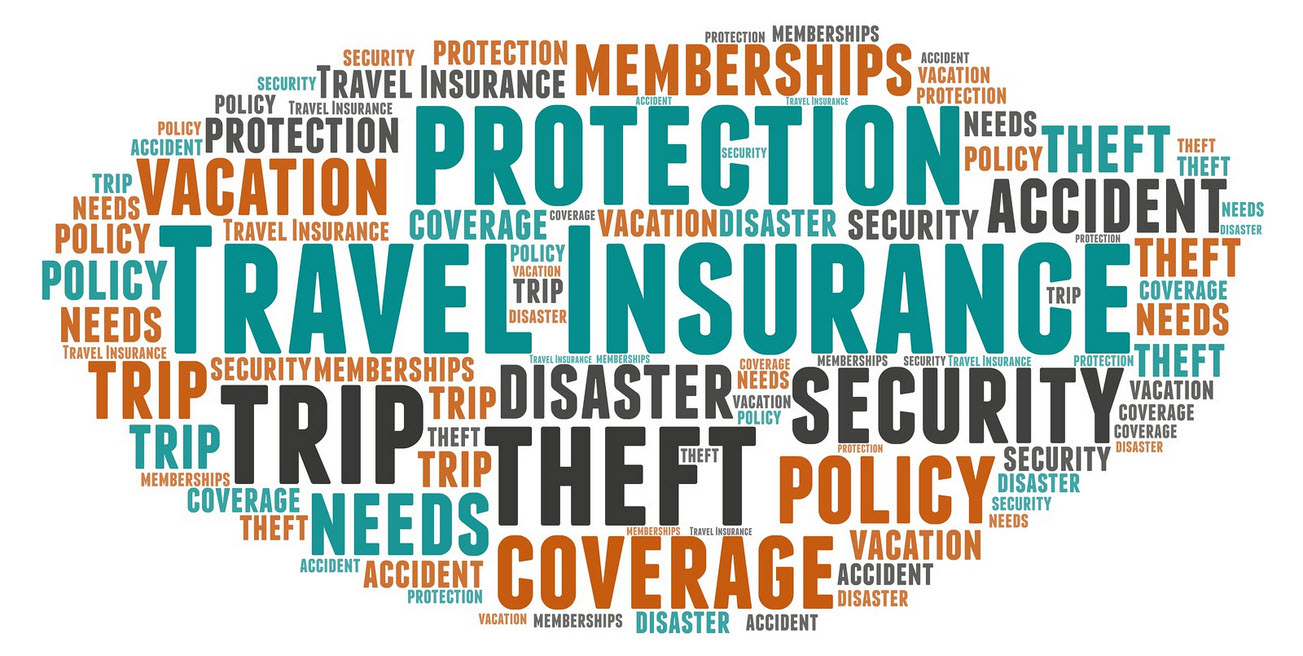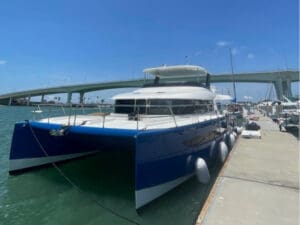For wanderlusts like those in our Catamaran Guru sailing community, investing in travel insurance is a wise decision. As more and more travelers take to exploring, it is easier to get sick abroad and as global weather becomes increasingly violent, you are like to experience travel delays.
word cloud by epictop10.com
There is travel insurance that helps you to control these costs along with covering cost of dealing with travel delays, lost bags, trip interruptions, and trip cancellations. And, most travel insurance includes help with things like rebooking a missed airline connection or identify a medical professional to help which can offer peace of mind in addition to relief for the wallet.
We are fans of travel insurance and want to share with those who have so many questions about it, feel overwhelmed and unsure if it is right for them. So here is our take on travel health insurance and trip protection.
What is Travel Insurance?
There are two categories of travel insurance.
Travel Health/Medical Insurance
- Medical treatment: This includes medical expenses like doctors, labs, diagnostics like x-rays, prescribed medical equipment like crutches, and prescribed medicines you may need if you are sick or injured while on your trip.
- Medical evacuation: This includes emergency travel costs including specialty medical evacuation services If your misfortune requires you to return home immediately to receive care.
- Travel accident: Like regular accident & disability insurance you may have, this pays a specified amount to you or your designated beneficiary In case of accidental death or dismemberment.
Trip Protection
- Trip delay: This includes coverage of costs related to delays experienced with publicly available transportation (plane, train, bus, boat). It might include not only transportation replacement but also meals, hotel, transfers, rebooking fees, etc.
- Trip cancellation: This includes coverage for nonrefundable pre-paid trip expenses if you need to cancel a trip. This is an area that it is vital to carefully read the fine print as you need to understand what situations are covered. For example, if you or your spouse fall ill, have an accident, or die, then you are covered, but if you have situations like elderly family members that may fall ill or worse, you may or may not be covered depending on your relationship with that family member and what your travel insurance states.
- Trip interruption: If you miss a flight or any segment gets cancelled, you fall ill and cannot continue your trip, or any other covered reason, you may be reimbursed for unused, nonrefundable reservations for hotels, tours, and other activities.
- Luggage delay: This includes reimbursement of costs to purchase essential items such a toiletries and limited clothing that may be required until you are reconnected with your luggage. Length of the delay and reimbursement amount limits vary.
- Lost/damaged luggage: If your luggage is severely damaged by a carrier, is flat-out lost, or has even been stolen, you may receive monetary compensation.
- Rental car insurance: This provides coverage for damage to or theft of a rental car.
You May Already Have Travel Insurance!
If you have a credit card with travel-focused benefits (and most of us global nomads do), your card may already offer adequate health and trip protection for your trips. If not, or if your trips tend to be longer than a week, more expensive, or involve more adventurous activities (like driving in some countries or exploring remote areas), then your credit card travel insurance may not be enough for your needs.
Some credit cards include both travel medical and trip protection, while others may only have one or the other. Independent travel insurance policies offer both.
Credit Card Travel Insurance
Credit card travel insurance is regular travel insurance, but unlike independent travel insurance where you can choose your levels of coverage when purchasing. it comes with set levels of coverage for each trip you book using your credit card no matter the cost or adventure level of your specific trip. Both come with a dizzying multi-page set of terms and conditions, so take your time to sit down and really read through them to know your coverage. Use the high-level coverage limits they show you as a guide for comparison shopping if considering which credit card to enroll in, but to be prepared to use the travel insurance, read the terms and conditions before you leave home.
The one big condition that applies to most cases for having your credit card’s built-in travel insurance cover your trip is that you MUST use that specific card for the purchase. So be diligent when booking travel to use the card that covers you.
If you are an avid traveler, there are benefits to using a credit card that offers travel insurance at levels that suit the costs and risk levels of your most frequent type of trips as well as your current family health situation (current illness and age of family members or yourself may be a cause to purchase higher levels of insurance).
- Saves time and brain power: No need to research travel insurance plans for every trip you take as you know you are covered. (When taking bigger, longer trips, review your terms and conditions before booking.)
- Saves money: Even if your travel card has an annual fee, it is likely to be much less than the cost of independent travel insurance plans plus you get additional perks for that fee.
- Coverage for using miles and points: If you used miles or points to book your travel and paid for the taxes and fees with your card, most credit cards travel insurance covers claims related to that trip. Independent travel insurance will not cover miles or points reinstatement.
Independent Travel Insurance
If you chose your credit card well, it should cover a lot of your travel insurance needs. But if you book an expensive trip of a lifetime, a trip with a longer duration than your plan covers, or a trip in a remote area or with higher risks for illness or injury, or or your family is experiencing higher risks for creating situations that may require trip cancellations or interruptions, then it is time to look at independent travel insurance to supplement your credit card travel insurance.
For example, medical evacuation is one aspect that many credit card travel insurance policies do not cover (but many do). If you are going on a journey that includes higher risk activities especially in remote locations, then you will want to look into an independent insurance plan.
Also, in the unlikely chance you don’t have a credit card that offers travel insurance benefits, you can purchase an independent travel insurance policy for each trip.
Keep in mind that credit card travel insurance benefits cover any trip you book using the card, but an independent policy must be purchased for each trip. But, some policy providers now offer annual policies that cover any trip that falls within the policy’s effective dates. If you are a frequent traveler, annual policies can be an incredible deal and provide the ease of not researching travel insurance with every trip you book. And others offer monthly subscriptions, perfect for digital nomads who need to use travel insurance as their main medical insurance given their locale is always changing. If you are traveling in a group (usually 7 or more), group travel insurance is the way to go. Travel insurance has many flexible options that is great but makes it confusing.
There are a wide variety of companies that offer travel insurance and we recommend that you check out several to familiarize yourself with how the plans work and the varying costs and coverage.
Typically travel insurance policies are offered in tiers, often three tiers to give buyers options to fit both the characteristics of the trip and the budget.
Independent travel insurance policies offer higher levels of coverage than credit card travel plans. Costs of the plans are based on the overall price of the trip, duration of the trip, and age of the travelers.
To find travel insurance, just search online “travel insurance”. Check out our travel insurance partners and other favorite medical and travel insurance for cruisers.
Many travel policies offer specialty coverage such as if you are planning a trip that requires particular equipment to participate in like skiing, then you should look for coverage that covers expensive rental gear or loss/damage of your own gear. And, for those type trips, emergency medical evacuation coverage is advised. Getting you off the side of a mountain is expensive.
Questions to Ask When Buying Travel Insurance
Other key aspects to look for when purchasing your trip’s travel insurance include:
- What financial risks are you willing to take? You can save money by buying a policy that has lower coverage than your trip costs for cancellations and interruptions but gives you a good level of medical coverage.
- Are pre-existing medical conditions covered? Many insurance policies exclude this!

photo by Life Falcon
- What are COVID-19 coverages? The pandemic brought new differences to travel insurance policies…some cover the mandatory quarantine expenses and related cancellations, others exclude or limit them. Read the fine print.
- Do you need adventure sports coverage?
- Do you need additional coverage for electronics, jewelry, or other expensive items you will have with you? This is especially important if you are working on vacation and need your laptop and phone.
Does the insurance company have mostly positive reviews online? You won’t find any provider with a perfect rating as humans are involved, but if you find no reviews at all or primarily bad reviews, look elsewhere. - When must the travel insurance policy be purchased? Most require it be purchased about the same time as the final deposit, but no for sure before paying for the policy.
It is vital to consider what types and levels of coverage you need from travel insurance. And, also, understand the details in the terms and conditions to make sure you are buying what you think you are. And the final bit of advice is to have your policy handy in digital or printed form while on your trip. Also, download and set up any related app that may help you file a claim or look up coverage before you leave home. And jot down key information like the customer service phone number in a handy place because you may not be at your best when you need to use your coverage.






